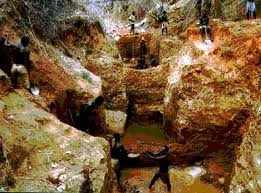Paladin Energy Limited has warned the government against tampering with the Kayelekera uranium mining deal by way of renegotiation, saying that could not only breach their agreement, but also scare away potential foreign investors.
The company’s General Manager for International Affairs Greg Walker said this in response to opposition People’s Transformation (Petra) Party’s call for renegotiation of the deal for the country to have 40 percent equity in the mine up from the current 15 percent.
“No, it is not possible (to renegotiate deal) and it would be very unfortunate for Malawi to attempt to press this issue. A key prerequisite of the very substantial foreign investment in Kayelekera was the signing of the Kayelekera Development Agreement, [which] provided a 10-year stability period to provide comfort to project lenders and shareholders, given Malawi’s lack of track record as a host nation for a major resource investment.
“It was to protect against the risk that government in an untested jurisdiction would seek to change the rules once a substantial investment had been made [and] this is now precisely what some people are suggesting, which sends a very negative message to potential foreign investors in the country,” Walkers said in an email.
He further said if investors and their lenders believe that their investments would be at risk, they will look elsewhere or refuse to finance projects in the country.
He said the government did not pay anything for the stakes as part of the deal.
But Walker said if the government had to meet its proportional 15 percent equity contribution last year, it would have had to find US$21.75 million simply to keep Kayelekera Mine open.
And the amount could have been US $58 million if the stake was at 40 percent as requested now.
Principal Secretary in the Ministry of Natural Resources, Energy and Mines Ben Botolo concurred with Paladin’s stand, saying while policy formulation is possible, renegotiation of the deal is complicated.
He said the development stabilisation agreement ensures that the investor recovers all the money spent during exploration stage without any disturbance and renegotiation could only take place once all the money has been recovered.
Petra president Kamuzu Chibambo in an interview last week said it was high time the government had renegotiated for 40 percent equity to improve on forex availability in the country.
“It’s high time we renegotiated the deal and have at least a 40 percent stake otherwise we’ll continue to be a begging nation,” he said.
Malawians have complained that the Malawi Government gave too many concessions in the Kayelekera deal and have called for a discussion between the investor and the government for a new deal favourable to the country.
Former Reserve Bank Governor Perks Ligoya last year attracted Paladin’s wrath when he said the Malawi Government goofed on uranium mining and suggested that it be renegotiated.
But Walker said the mine is benefiting the country as he said it invested more than $US500 million to date building a “state of the art” mine and a processing plant at Kayelekera.
This, he said, has in turn benefited over 2,500 people through employment, of which some 887 Malawi nationals are still working there.
He said Kayelekera has added some $US295.5 million to Malawi’s export earnings, accounting for 12 percent of Malawi’s total exports.
In 2007 the government, which was still reviewing a draft Environmental Impact Assessment (EIA) for the uranium mining at Kayelekera, acceded to the project amidst protest from other quarters. The company started exporting uranium in 2009.

.jpeg&w=60&q=100&h=60)




.jpeg&w=60&q=100&h=60)






